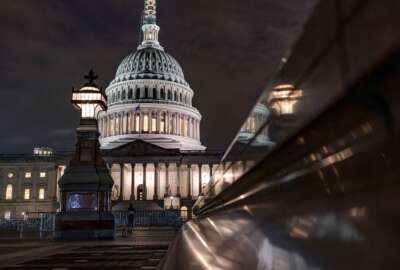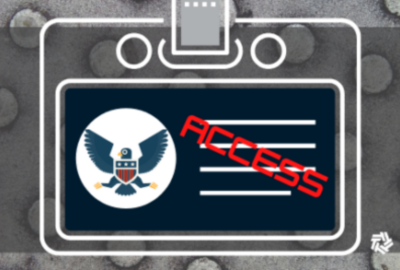Pentagon leaders call hold on military confirmations ‘problematic’
In today's Federal Newscast: The secretaries of the Army and Air Force call the hold on the confirmation of hundreds of military officers "problematic." The...
- Agencies may soon have an easier time offering pay incentives to their employees. Federal employees working in hard-to-fill positions can receive recruitment or relocation bonuses to try to get them to stay in their jobs. But right now, agencies have to get these bonuses officially approved by the Office of Personnel Management. Now OPM has proposed changing the rules so agencies could offer pay bonuses directly, without the need to go through OPM. The goal is to make it easier and quicker for agencies to offer the incentive, while freeing up time for OPM to focus on broader policies. The proposal would not change the total dollar amount that employees can receive, or the requirements for when bonuses are allowed by law.(Agencies would have an easier time approving pay bonuses under OPM proposal - Federal News Network)
- Improper payments crept up in 2023. The federal improper payment rate last year comes in at 5.43%, a slight uptick from the 5.12% in 2022. The Office of Management and Budget said the growth is mainly due to an increase in payments with insufficient documentation. The administration also found that if three pandemic relief programs — the Pandemic Unemployment Assistance program, the Paycheck Protection Program and the COVID-19 Economic Injury Disaster Loan program — are excluded, the improper payment rate was 4.03%, which is the lowest level since 2014. The Centers for Medicare and Medicaid Services Medicaid program saw some of the biggest reductions, dropping its improper payment rate by more than 7%.(Improper payment rate for 2023 increases slightly, OMB says - White House)
- It is taking longer for the government to process some security clearance cases. The security clearance backlog is back on the rise for the first time in years. That is according to the latest update on the Trusted Workforce 2.0 initiative. In the fourth quarter of fiscal 2023, it took the Defense Counterintelligence and Security Agency an average of 115 days to do a top-secret clearance investigation. That is well up from 84 days on-average at the end of last year. Officials attribute the increase to higher-than-expected clearance applications and an IT system outage in September. (Why some security clearance cases are taking longer lately - Federal News Network)
- In the last decade, there have been only minor changes in the representation of racial minority groups in the federal workforce. But in just the past few years, the federal workforce has proven to be more diverse than the nationwide labor force. That is according to a new report from the Government Accountability Office. GAO added that women in racial minority groups have made small gains in holding positions in the Senior Executive Service. But despite the improvements, these groups remain underrepresented in the SES compared with the federal workforce overall.(Federal workforce: Data reveal minor demographic changes 2011-2021 - Government Accountability Office)
- For each dollar invested in the Government Accountability Office, the government received $84 in return. New data from GAO shows the government saved $27 billion from the audit agency's reporting alone. GAO said the government also received another 1,200 benefits that cannot be measured in dollars, but led to program and operational improvements across the departments. Among the major impacts in 2023, GAO said its fraud and risk management framework led the Office of Management and Budget to clarify guidance and helped the Treasury Department implement IT project controls to further protect data. In fiscal 2023, GAO received 647 requests for work from 93% of the full committees of the Congress. The agency issued 671 total products and made more than 1,300 new recommendations. (GAO 2023 performance results - GAO)
- The Cybersecurity and Infrastructure Security Agency is relaunching an old working group to learn from new cyber data. Last week, CISA announced the re-establishment of the Cybersecurity Insurance and Data Analysis Working Group. The goal is to combat ransomware and other cyber threats by better understanding what security controls work best to defend against cyber incidents. The group will work with Stanford University’s Empirical Security Research Group to dig into the data and help government and industry better understand where to invest cybersecurity resources.
- Pentagon leaders continue to call on the Senate to end Sen. Tommy Tuberville’s (R-Ala.) hold on the confirmation of hundreds of military officers nominated for leadership roles. The secretaries of the Army and the Ar Force said the holds are "problematic." They said the holds harm the military, its service members and their families. A Senate panel recently approved a resolution to block the hold, but that must head to the Senate floor and get nine Republicans to vote in favor of it.(Leaders want the military holds to end - Federal News Network)
- TRICARE participants or those eligible only have a few weeks left to enroll or make changes to their plans. The Defense Department’s health care system, TRICARE, has its open season until December 12. Open season applies to the TRICARE Prime and TRICARE Select plans. Selections will take effect on January 1, 2024. Some out-of-pocket expenses like enrollment fees and co-pays have increased from 2023 for certain groups. Additionally, participants can mix and match plans amongst their family members.
Copyright © 2025 Federal News Network. All rights reserved. This website is not intended for users located within the European Economic Area.
Peter Musurlian
Peter Musurlian is a producer at Federal News Network.
Follow @PMusurlianWFED






